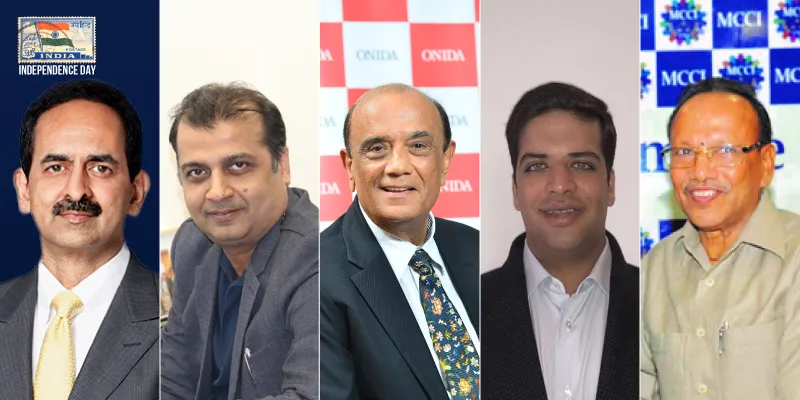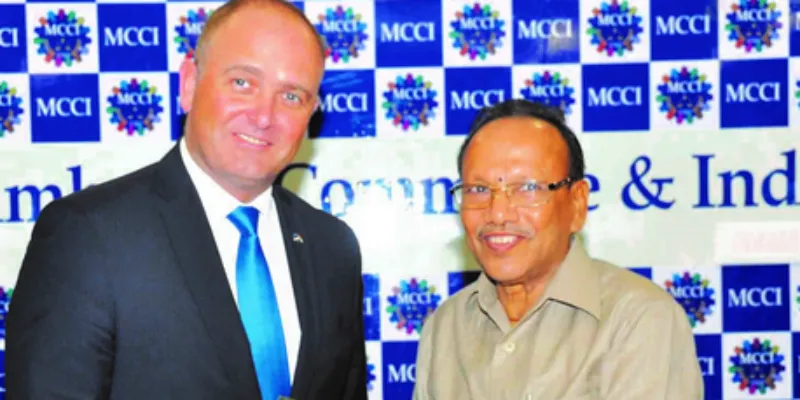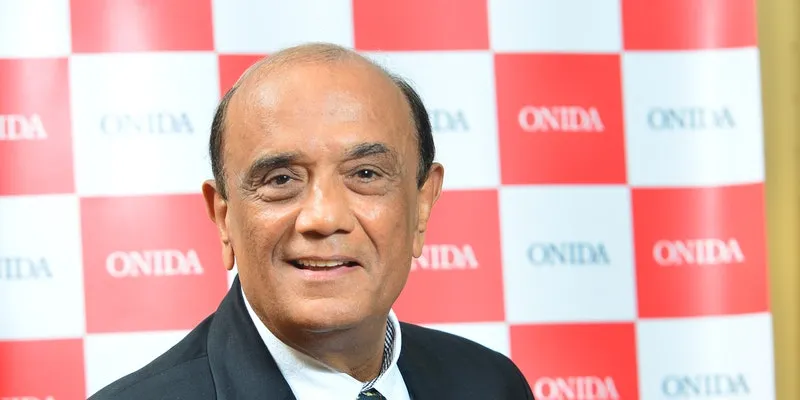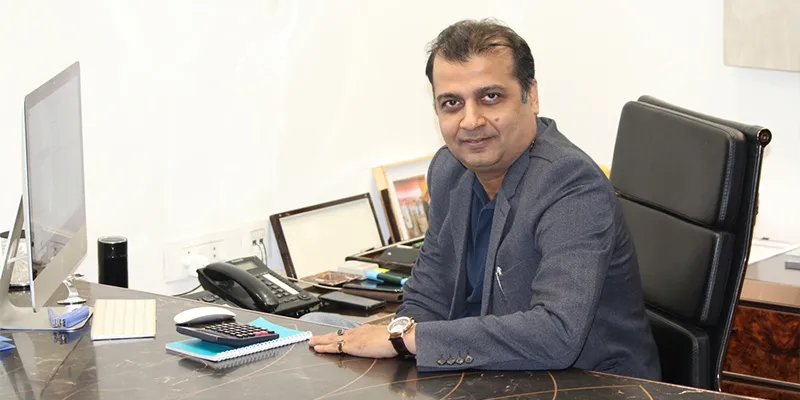Independence Day 2019: 5 large 'Make in India' companies founded before economic liberalisation
This Independence Day, SMBStory has drawn up a list of some successful Indian industries that were started or made a name for themselves during the post-Independence and pre-liberalisation period.

The Swadeshi Movement, a part of India's Independence Movement, emerged as a response to colonial policies and sought to revive domestic products and manufacturing processes.
This early version of the 'Make in India' sentiment continued post-Independence during the post-Second World War economic expansion -a thirty-year period referred to as the golden age of capitalism.
This period saw rapid economic growth in the United States, Soviet Union, West European, and East Asian countries and a new country like India had to do something to keep up with these developed industrial economies while balancing its agrarian.
The Industrial Policy of 1956 was thus adopted by the Indian Parliament to provide clarity on the industrial development of India. For many years, it continued to constitute the basic economic policy, and also came to be known as the economic constitution of the country.
The policy sharply defined the creation of a public sector, and kept the private sector under state control through a system of licences.
This system, called Licence Raj or Permit Raj, was a set of licences and regulations provided by government agencies that were required to start and run a business.
During this time, the rupee was inconvertible, there were high tariffs, and licensing of imports placed several restrictions on sourcing goods or materials from abroad.
Despite these import restrictions and the red-tapism associated with Licence Raj, many budding entrepreneurs wanted to start their own businesses and capitalise on the industrial climate of import substitution.
On Independence Day 2019, SMBStory has drawn up a list of some successful Make in India industries that started or made a name for themselves in the post-Independence era of Licence Raj:
Hero Cycles

Abhishek Munjal, Director, Hero Cycles
Established in 1956 in Ludhiana by OP Munjal, Hero Cycles was set up in post-Independence India. At this point, the nation was crying out like a young child discovering its freedom. It was on the move and needed wheels. Munjal and Hero Cycles came in at the right time.
Munjal was born in Kamalia village, which is now in Pakistan, to Bahadur Chand Munjal and Thakur Devi. He was just 16 when he started the business of bicycle repairs.
“In order to earn a living after the Partition, OP Munjal’s family moved to Amritsar to start a bicycle spare parts business with his three brothers, Brijmohan Lal Munjal, Dayanand Munjal, and Satyanand Munjal,” says Abhishek Munjal, Director, Hero Cycles.
The business started small, but after venturing to manufacturing bicycles, there was no looking back. Today, it is the largest single bicycle maker in the world. It makes more than five million cycles per year, and exports to over 70 countries.
Kirloskar Brothers/Kirloskar Group

Sanjay Kirloskar, Chairman and MD, Kirloskar Brothers
Although Kirloskar Brothers was incorporated in 1920, when it made centrifugal pumps, valves, motors, turbines, etc, it diversified in the 1940s into various allied businesses, many of which became big enough to be converted into different companies with the same logo and under the Kirloskar Group.
When Sanjay Kirloskar took over the reigns from his father in 1983, India was yet to be free from the Licence Raj. Until 1991, before the economic liberalisation policy brought in by the government, there was a condition that one could carry on with one’s business only if they agreed that they could make a certain number of products every year.
The policy mandated that a business could not import any machinery (at least not the ones that were already being manufactured in India) to manufacture its products.
Despite these considerations, Sanjay led KBL into becoming the flagship of the $2.1 billion Kirloskar Group and one of the most admired engineering firms both in India and the world. Today, it has 18 manufacturing facilities supplying to more than 165 countries spanning across more than eight sectors.
Shyam Steel

Shyam Sundar Beriwala (right) with Riho Kruuv, Ambassador of Estonia to India
Started in 1953 by Shriram Beriwala, Shyam Steel foresaw that the infrastructural growth in the country would require quality steel. The resources such as iron ore, coal, and quality workforce were available.
Shriram was then joined by his younger brother Shyam Sundar Beriwala, and the brothers decided to make products that were critical to the foundations of infrastructure - steel bars.
To make these steel bars, these brothers set up manufacturing units at various locations in West Bengal. Under their leadership, Shyam Steel had to navigate major changes in the demand and supply ratio.
Over many years, Shyam Steel has become one of India’s biggest TMT (thermo mechanical treatment) steel rebar (reinforced steel bars) manufacturers.
Today, Shyam Steel is one of the leading primary TMT bar manufacturers and steel producers in India, clocking an annual turnover of Rs 2500 crore. It employs over 5,000 people and provides TMT steel rebars to projects by Indian Oil, Essar, L&T, Reliance Infrastructure, and many others.
Onida

Vijay Mansukhani, Cofounder and MD, Onida
In the 1970s, Vijay Mansukhani was working in the Iranian merchant navy. As a man who was starting off his career, he was happy earning approximately six times the salary that Indians in the merchant navy were earning.
But when he met his business partner Gulu Mirchandani, his life changed. Vijay decided to jump ship and become an entrepreneur in 1981.
“We had started Onida when the Asian Games happened in Delhi. The late PM Indira Gandhi had just opened the floodgates of opportunities by announcing national telecast and colour television around that time,” says Vijay Mansukhani, Co-founder and MD, Onida (a brand under Mirc Electronics).
In an incredible tale of perseverance, battling adverse economic conditions, and facing stiff competition from foreign companies, Onida emerged triumphant. Vijay authoritatively led Onida to become a Rs 736 crore turnover company. It became a household name as lakhs of Indians who were buying their first TVs, were choosing Onida.
APL Apollo Tubes

Sanjay Gupta, CMD, APL Apollo
APL Apollo is a Rs 5,334 crore turnover steel tubes maker but its high brand value and large scale of operations were not built overnight. It was started by Sudesh Gupta in 1986, and was originally named ‘Bihar Tubes’.
“My father started the company for producing steel tubes and pipes especially for irrigation purposes. He also wanted to grow it and become known globally,” says Sanjay Gupta, CMD, APL Apollo.
The company initially set up a plant in Sikandrabad, a town in Uttar Pradesh, to manufacture electric resistance welding (ERW) black pipes. The unit had an installed capacity of 6000 metric tonnes per annum.
Presently, APL Apollo is the largest producer of ERW steel pipes in India. Its catalogue comprises hollow sections, black pipes, galvanised pipes, pre-galvanized pipes, and direct forming technology (DFT) products.
(Edited by: Palak Agarwal)









